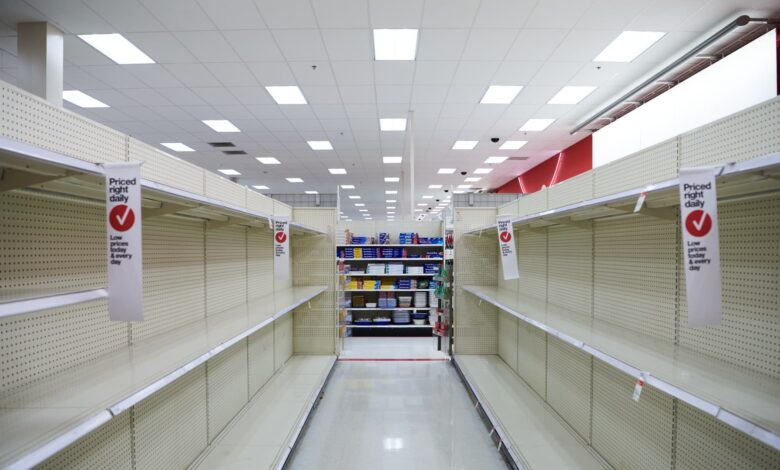Empty shelves, trucking layoffs lead to recession in Apollo’s trade war timeline

The economic impact of the tariffs imposed by the Trump administration is expected to have far-reaching consequences, with Apollo Global Management predicting a recession this summer. According to Torsten Slok, chief economist at Apollo, the timeline for the impact of tariffs announced by President Trump could soon hit the U.S. economy. Based on the transport time required for goods from China, U.S. consumers may start noticing trade-related shortages in their local stores as early as next month.
Slok outlined a timeline in a presentation for clients, detailing the potential effects of the tariffs on the economy. He warned that empty shelves could become a reality in U.S. stores in a few weeks, leading to shortages reminiscent of the Covid-19 pandemic for both consumers and companies relying on Chinese products.
The timeline presented by Apollo Global Management is as follows:
– April 2: Tariffs announced, containership departures from China to U.S. slowing
– Early-to-mid May: Containerships to U.S. ports come to a stop
– Mid-to-late May: Trucking demand halts, leading to empty shelves and lower sales
– Late May to early June: Layoffs in trucking and retail industries
– Summer 2025: recession
To support the prediction of an impending recession, the presentation also highlighted a decline in new orders for businesses, earnings outlooks, and capital spending plans in recent weeks.
While the Trump administration has paused some of the tariffs announced on April 2, duties on Chinese goods have been increased even further. Treasury Secretary Scott Bessent acknowledged that the current tariff standoff with Beijing is “unsustainable,” with levies on goods from China now subject to a 145% rate.
Although China is not the sole source of consumer goods, it plays a significant role in the U.S. economy. The U.S. imported $438.9 billion worth of goods from China in 2024, making it a key trading partner for the country.
While some on Wall Street believe a recession is likely in 2025, Slok’s predictions lean towards the more pessimistic side. Bessent has expressed expectations of a “detox period” for the economy due to the trade negotiations, rather than a full-blown recession.
Despite the impending challenges, there is some evidence of a “pull-forward” in orders before the tariffs were announced, which could help keep goods on shelves for longer than anticipated. Analysts suggest that while demand may be slowing, stock levels remain relatively high so far this year.
In conclusion, the impact of the tariffs and trade tensions between the U.S. and China is likely to have significant repercussions on the economy. It is essential for businesses and consumers to prepare for potential disruptions and uncertainties in the coming months.





